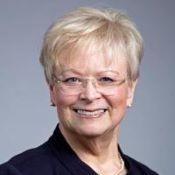Durham, NC, is known as the “City of Medicine.” What may not be as widely known is that Japan has a “City of Medicine,” too.
Durham’s “Sister City” — Toyama, Japan — also bears this designation, and it comes because the area has been known for over 300 years as a hub of sales and development for the pharmaceutical industry. The centuries-old practice of delivering handmade medicines and Yakuzen, or medicinal foods, to households by traveling salesmen has given rise to a burgeoning pharmaceutical industry in the modern city, as well.
The University of Toyama has a school of medicine, and the Toyama City Hospital is home to residency training programs for physicians. The Japanese medical education system requires an initial two-year clinical training program of all physicians following completion of medical school. This residency includes training in general internal medicine, general surgery, emergency medicine, pediatrics, obstetrics and gynecology, psychiatry and community medicine. Physicians who complete this two-year training period may apply for advanced programs in a variety of medical specialties, according to Tadahiko Kozu, M.D., in “Medical Education in Japan,” published in the online journal Academic Medicine.
The Durham-Toyama connection
For several years, in a partnership through the Durham Sister Cities program, Toyama residents have participated in visiting observerships in Duke’s Division of Family Medicine at the end of their two-year training period. These residents observe clinical practice, and spend time with our faculty and residents discussing and learning about primary care and population health improvement.
This partnership was initiated and fostered by Samuel “Woody” Warburton, Jr., M.D., professor emeritus of community and family medicine and former division chief of the Division of Family Medicine, who has actively worked to see that it continues now that he has retired.
Recently, the Toyama City Hospital and the City of Toyama hosted a delegation from Duke Family Medicine to visit Toyama and to teach and learn about primary care in both countries.
Susan Kleckley, MSW, LCSW, clinical social worker for the Duke Family Medicine Center, and I participated in this delegation, giving lectures about the U.S. health care system, primary care in the United States, health care after the Affordable Care Act, and the role of social work in primary care and Patient-Centered Medical Homes.
About our visit
We participated in an extended learning session with the residents, in which we discussed case-based primary care scenarios and the patient-centered response to those scenarios.
In addition, we spoke with nurses, social workers and physicians about the Japanese health care system and the role of primary care in that system. Social workers there were very pleased to learn about the role of social work as an integral part of the primary health care team in the United States.
We also visited an adult day care center, a community senior citizens’ center and a local pharmaceutical manufacturing company as part of our tour of the Japanese “City of Medicine.” It was a productive visit and we expect to host Japanese residents here again within the next year, if circumstances permit.
We were warmly welcomed by the city of Toyama, and had a visit with the deputy mayor. The hospital staff was also very gracious, and hosted a number of events that highlighted Japanese cuisine (Toyama is known for having the best sushi and sashimi in all of Japan) and outstanding conversation.
We are most grateful for their hospitality, and hope to welcome some of residents, physicians, nurses and social workers from Toyama City Hospital to visit here in the future, as well.
Sharon Hull is division chief of the Division of Family Medicine. Email sharon.hull@duke.edu with questions.
Editor’s note: Dr. Hull guest blogs the first Friday of every month.
